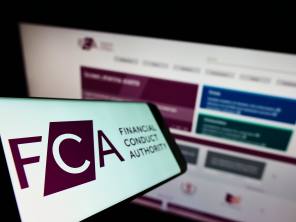

The preparation for, and implementation of, Mifid II has dominated regulatory change over the past few years, with the objective of improving integrity, fairness and efficiency across the UK wealth management industry.
However, the latest research from AKG, 'Mifid II implementation, a work in progress', shows that the majority of financial advisers (59 per cent) believe the regulation is failing to deliver on these objectives.
This finding clearly indicates that there is more work to be done in order to improve the industry’s reputation.
Yet a more worrying trend is also evident – of an emerging advice gap due to the extra work that financial advisers must undertake as a result of the new Mifid II requirements.
Nearly a third of financial advisers surveyed stated they have either increased their minimum client portfolio requirements already or are considering this move.
This trend is apparent across the industry and likely contributed to Standard Life’s recent announcement that 750 clients of their restricted national advice business, 1825, could become non-advised in a review of their client proposition.
We should therefore ask why is a piece of regulation that was introduced to address issues across the wealth management industry greatly affecting advice businesses?
Especially when we consider that Mifid II was not primarily introduced to address this area of the industry.
In fact, advice businesses have already been through a separate regulatory review under the Retail Distribution Review in 2013.
There is little doubt that the time pressures felt by financial advisers have been amplified by the trickle-down effect of incomplete or inaccurate data being provided by asset managers, discretionary fund managers and platform operators.
Half (51 per cent) of the advisers surveyed as part of AKG’s research stated that the greatest discrepancy in reporting standards between DFMs and the platform operators they use was around disclosure of costs and charges.
This means that workloads and time pressures are increasing alongside the cost of providing advice.
This makes the process of servicing a client more expensive and is driving the access to advice ‘upmarket’ – an unintended, but nonetheless apparent consequence of the introduction of Mifid II.
Technology is playing a key part in addressing the transparency, disclosure and data discrepancies identified across the industry.
More cost-effective investment solutions are becoming available, with the advice process becoming more streamlined to improve client outcomes.
The extent to which a business embraces technology not only influences their ability to deliver on the requirements of Mifid II, but will also underpin how successful they are in attracting and retaining business relationships with financial advisers.
There are two issues that need to be addressed: (i) the advice gap itself and (ii) the economics of providing advice.
To remain relevant to the wider retail market and attract new advisers to the profession, the wealth management industry needs to be accessible and inclusive.
In short, more needs to be done by asset managers, DFMs and platform operators to swiftly provide accurate and consistent data in a format that is valuable and meaningful for clients.
This will alleviate the pressure on advisers and therefore enable more clients to benefit from access to advice – closing the advice gap and generating better client outcomes.
Sophie Austen is intermediary business development manager at Netwealth




